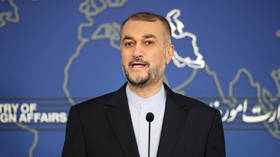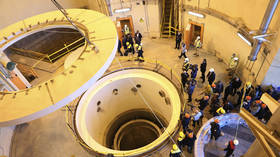US and Iran explain why nuclear talks stalled

Negotiations to revive the 2015 nuclear deal have made no progress because Iran has introduced unrelated demands, US special envoy Robert Malley said in an interview on Tuesday. Meanwhile, Tehran said it was only insisting on the full removal of the US embargo and guarantees that Washington won’t renege on the deal again, as it did in 2018.
Commenting on the indirect talks between the US and Iran in Qatar, which ended at an impasse last week, Malley blamed Tehran in an interview with National Public Radio (NPR).
“They have, including in Doha, added demands that I think anyone looking at this would be viewed as having nothing to do with the nuclear deal, things that they’ve wanted in the past,” he said.
“The discussion that really needs to take place right now is not so much between us and Iran, although we’re prepared to have that. It’s between Iran and itself. They need to come to a conclusion about whether they are now prepared to come back into compliance with the deal,” Malley added.
Iran has repeatedly insisted that the US has it backwards, and that Washington must return to the deal first – including lifting the “snap-back” sanctions – before Tehran can be expected to abide by its limitations.
Talks could be constructive if the US showed “seriousness and flexibility,” Iranian Foreign Minister Hossein Amir-Abdollahian told his Omani counterpart, Sayyid Badr Albusaidi, on Monday, according to the state news agency IRNA.
Iran is demanding a verifiable mechanism for the full removal of US sanctions, and guarantees from Washington that it won’t exit the deal again, Amir-Abdollahian added.
The Joint Comprehensive Plan of Action (JCPOA) was signed by Iran, the US, Russia, China, the UK, France, and Germany in July 2015, and placed limitations on Tehran’s civilian nuclear programs so they could not reach military applications – in exchange for sanctions relief.
While the United Nations nuclear watchdog repeatedly confirmed that Tehran was keeping to the agreement for years after it was struck, then-US President Donald Trump unilaterally withdrew from the pact in May 2018 and reimposed all prior American sanctions. Iran has responded by gradually scaling back its own commitments under the JCPOA, insisting it will return to full compliance only after the US penalties are dropped.













